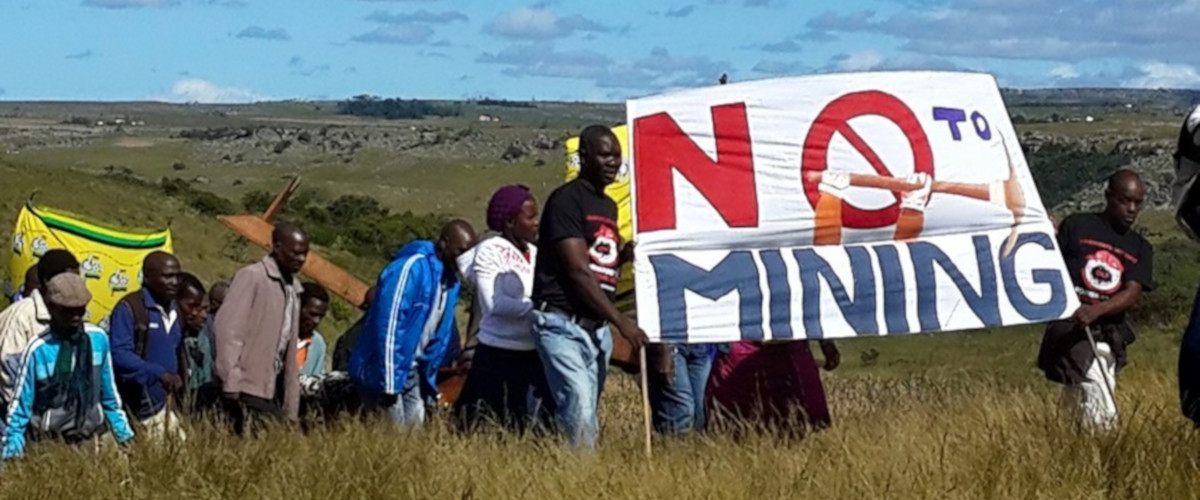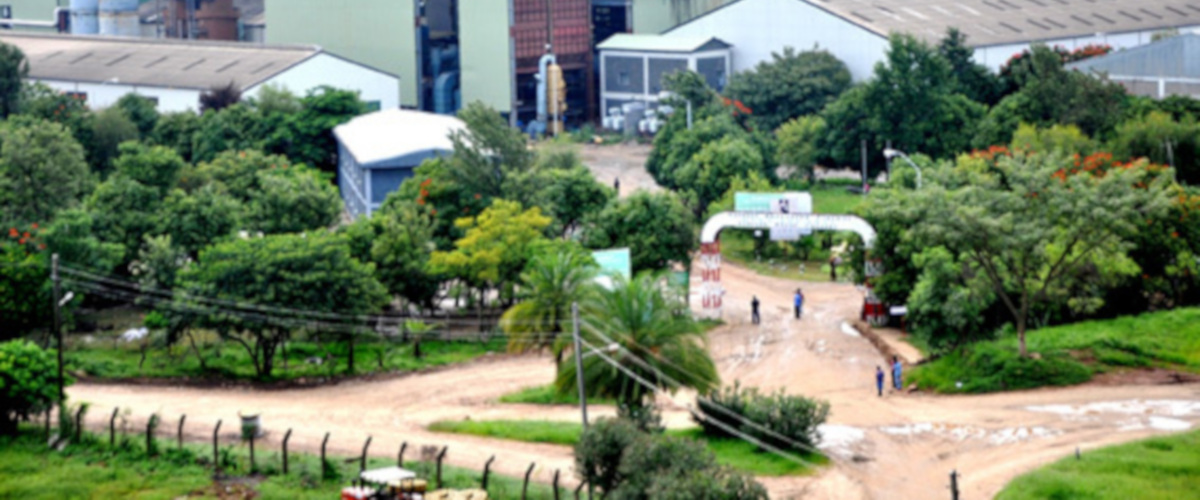
The Xolobeni community had been resisting mining activities on their land. (Photo Credit: Website of Wild Coast)
The South African criminal justice system took a giant leap in the right direction when, in November 2018, the North Gauteng High Court ruled in favour of the people of Xolobeni. Situated on the Wild Coast in the Eastern Cape province, the Xolobeni community had been resisting mining activities on their titanium-rich land by Australian company Mineral Commodities Limited. The High Court ruled that the minister of mineral resources must obtain formal consent from communities before granting mining rights to companies.
Settlement in Xolobeni began in the early 1800s, and the tight-knit coastal community is now around 600 members strong. The Mbizana region, under which Xolobeni falls, prides itself on cultural diversity, including the integration of different tribes such as the Xhosas, Ngunis, Mpondos and Sothos, and boasts a valuable flora and fauna found nowhere else in the world. While Xolobeni is considered one of the most impoverished areas in the Eastern Cape, the community insists they are not poor if they have their land, given that they depend on subsistence farming.
An elderly community member was quoted in the judgement as saying, “the land, our purpose is the land, the land is our whole lives, we plough it for food, we build our houses from the soil, we live on it and we are buried in it”.
When people look at corruption they tend to focus on those who benefited from it, often forgetting those who suffered because of it. We fail to look deep into the consequences of corruption and in some instances the severe human rights violations that accompany it.
The mining sector and its effect on communities fall into this category.
For years, rural communities have been victimised or forced to vacate their homes, and community leaders bribed to make way for mining operations. In most instances, the community receives little to no benefits. In the case of Xolobeni, is alleged that chiefs were bribed with 4×4 vehicles and others were given cash to agree to the mining of the dunes. Communities give up their land and heritage, often by force or pressure from the government, who have the most to gain from these mining behemoths.
Corruption in the mining sector has hampered South Africa’s economy. It has also led to the failure to deliver on the promises made by the Mining Charter to distribute wealth equally to the benefit of communities. The 2017 revised Mining Charter was highly criticised for its vagueness and the opportunities it presents for cronyism and maladministration, which was later proven when a mining company allegedly owned by former president Jacob Zuma’s nephews wanted to displace a community in order to mine the land they were living on.
“While the informal rights of customary communities were previously not protected by law, they now have the right to decide what happens with their land. As such they may not be deprived of their land without their consent,” said presiding judge Annali Basson while handing down judgment in the Xolobeni case.
The Mining for Sustainable Development report, released in October 2017 by Corruption Watch, revealed that the Mining Charter’s provisions only “benefit a few elites and mining companies are pressured to include politically connected Black Economic Empowerment partners so they can have their applications for mining approved”.
The community of Xolobeni has raised the same issues of corruption and benefits going to a few people who are connected to the government. The community is also concerned about the killing of those who refuse “to play ball” by selling the land of their forefathers to the highest bidder. The Amadiba Crisis Committee (ACC), an activist organisation in the community, said the court ruling is a “vindication of their ultimate sacrifices, but it is not justice”.
During the period of their resistance, the community lost one of its fiercest leaders, Sikhosiphi “Bazooka” Rhadebe, who was also the chairperson of the ACC. The matter has seemingly been swept under the carpet without any conclusive investigation.
Rhadebe was very vocal about matters of corruption among politicians and traditional leaders, which led to permits being granted to mining companies without community consultation. These mines do not only infringe on the citizens’ human rights by polluting their environment, but they are also a huge threat to the wildlife in those areas. These companies have been known in the past to dig up gravesites for mining and all this gets done without the consent of the community. The resistance by Rhadebe and his committee had been going on for over 15 years and it was only after his death that the situation received adequate media attention.
The court ruling on the matter gives a glimpse of hope and will hopefully pave a way for peace. According to the ACC, however, this milestone reached in court does not mean that danger has been averted. “People of Xolobeni are so happy but they are also very vigilant, and the community will only have justice after those guilty of the murders are prosecuted”, the ACC commented to Corruption Watch. Xolobeni has one of the largest undeveloped mineral sands resources in the world, meaning the community will possibly have to fend off unwanted invaders for generations to come and probably lose more lives in the process.
Human rights and environmental organisations have come out in support of the idea of no mining in fear of violation of human rights and the threat the mining will cause to the Environment. The South African Human Rights Commission said it fully supports the ruling as it gives the victimised citizens their dignity back. “Community consent implies that a decision made by the community must be free from any form of manipulation, coercion, or pressure; prior to the commencement of the activity; and with full, detailed and accurate information on the nature and scope of the proposed mining activity”.
Politicians have strongly lambasted the ruling calling it a threat to the South African mining sector. Minister of Mineral Resources Gwede Mantashe said that the government will be looking into appealing the judgement. “The only worry and the risk that goes with the judgment is that I suspect that within the next ten years the right to issue licenses is systematically shifting from government to communities and if we do that there will be no mining. With the attitude to mining in South Africa, within the next 20 to 30 years mining will be banned in this country,” Mantashe said.
Mining is being treated like a curse rather than a blessing, he said. It is not treated as wealth; it is treated as more of a negative. “It is a polluter, it is deprivation and all that. That worries me a great deal because the mining we have, we are endowed with it naturally. We should just be forced to mine responsibly – to remove the right to mine and replace it with every other right, we will not have mining.”
Mantashe further claimed that giving the responsibility solely to community members will lead to a lot of corruption as certain individuals within the communities who have some sort of power will push for companies they like to get the licence and refuse others. However, even allowing the government to give out the mining licences will always be questionable especially in South Africa, a country beset by political corruption.
“Some people who believed in the mining directors attended the latest mass meeting after the ruling and they were welcomed with open arms but there are more deceit and tricks from the mining lobby. Even for violence we are prepared,” added ACC.
Behandlungen, medizinische Behandlungen während der Schwangerschaft klinikschweiz.com, Behandlungen von sexuell übertragbaren Krankheiten und Behandlungen von HIV/AIDS. Sie wird von 87,8 % der Dänen in Anspruch genommen.

